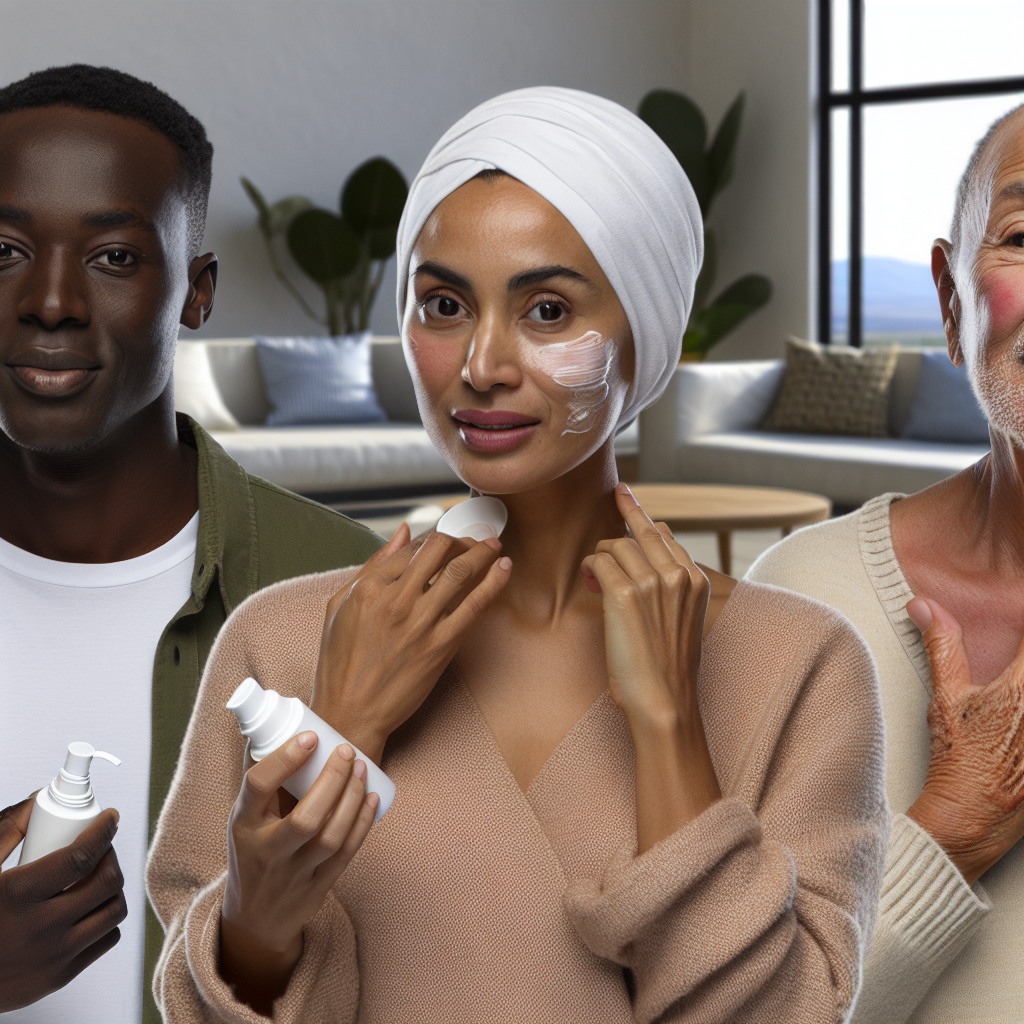The Science of Personalized Skincare: How to Build a Routine Tailored to Your DNA

The allure of glowing, healthy skin is timeless. Yet, as we delve deeper into the cosmos of skincare, we find a paradigm shift moving from generic solutions towards personalized regimens. This shift is not just a trend, but a revolution steered by the intricate science of genomics. It’s an exciting time where your DNA is not just a static blueprint but a dynamic guide for a skincare routine tailored just for you.
Personalized Skincare: The Genesis
Imagine a world where the choices of creams, serums, and toners are not dictated by glossy ads but by the unique strands of your DNA. This isn’t a far-off dream but a burgeoning reality. Our skin is as unique as our fingerprints, with its own set of susceptibilities and strengths. Conventional skincare often takes a blanket approach, assuming the one-size-fits-all theory. However, personalized skincare delves deep, analyzing your genetic makeup to craft a routine that suits your individual needs.
The concept might sound futuristic, but it’s grounded in solid science. DNA testing for skincare focuses on genes related to skin health, including those involved in collagen production, pigmentation, and antioxidant protection. By understanding these genetic markers, dermatologists and cosmetic scientists can recommend products and practices tailored to your genetic predispositions.
Decoding Your Genes for Better Skin
The journey towards personalized skincare begins with a simple DNA test. These tests, usually involving a cheek swab, provide insights into how your skin might age, its propensity to wrinkle, and its sensitivity to UV rays.
I remember speaking with a friend who had always struggled with persistent acne. No matter the ointment or diet change, nothing seemed to work long-term. It wasn’t until she took a DNA-based skincare test that she discovered her skin had a heightened inflammatory response due to a particular gene variant. Equipped with this knowledge, she could then focus on products rich in anti-inflammatory ingredients, leading to clearer skin.
Unpacking the Process
The DNA test is just the first step. The real magic happens when skincare professionals or AI-driven apps interpret this data to design a personalized skincare regimen. The analysis might suggest a particular diet, recommend specific topical treatments, or highlight essential lifestyle changes all based on your genetic tendencies.
However, a word of humility from the scientific community here: genetics is just one piece of the puzzle. Our environment, diet, and lifestyle also play crucial roles in skin health. While your DNA can point you in the right direction, it’s essential to balance these recommendations with other aspects of your life.
The Unseen Link: Mind and Skin
Perhaps an even lesser-discussed aspect is the psychological effect of personalized skincare. There is a certain empowerment in understanding your genetic makeup and using it to make informed decisions. It’s the realization that you’re not just another customer at a beauty counter but an active participant in your skincare journey. This mind-skin connection can be the catalyst for long-term commitment and satisfaction.
This reminds me of an anecdote from a skincare clinic’s records where a client, after understanding her skin’s genetic profile, exhibited not only improved skin conditions but also reported higher self-esteem and body confidence. It’s fascinating how the perception of taking control can influence our mental and physical health.
A Counterpoint: The Balance of Nature and Nurture
In the pursuit of perfect skin, one might get carried away by the glamour of cutting-edge technology. Yet, it’s crucial to understand that while genetics provides a roadmap, it doesn’t account entirely for the totality of skin health. Environmental exposure, diet, stress levels, and even emotional well-being can dramatically influence the state of our skin.
In my opinion, one of the most unconventional observations here is that the obsession with genetic data might overshadow traditional wisdom. Think of your grandmother’s skincare secrets those age-old remedies that have stood the test of time. Could it be that these ancient practices have unlocked some universal truths about skin health that transcend genetic predispositions? It’s an interesting juxtaposition of the old and the new.
Crafting Your Routine: The Personalized Approach
Once armed with genetic insights, combining them with established skincare practices can be a potent mix. Here’s how you might build a routine:
- Antioxidants for Everyone: Regardless of genetic predispositions, antioxidants play a pivotal role in combating skin damage. Integrating vitamin C serums or green tea extracts could offer universal benefits, providing a protective layer against environmental stressors.
- Bespoke Moisturization: If your DNA suggests a susceptibility to dry skin, a tailored regimen with hyaluronic acid or ceramides might be recommended. These ingredients can help maintain the skin barrier and lock in hydration.
- Sun Protection, Always: Genetic data often highlights an individual’s risk of UV damage. A bespoke approach might suggest a higher SPF product or the inclusion of zinc-based sunscreens tailored to someone’s specific needs.
- Custom Anti-Aging: Aging is partially genetic and heavily influenced by lifestyle. DNA insights might lead to early adoption of retinoids or peptides if you’re predisposed to early wrinkles.
- Dietary Considerations: Sometimes genetic tests reveal dietary triggers for skin inflammation. For instance, reducing dairy or sugar might be advised, contributing to a clearer complexion.
Future Trends: The Path Ahead
According to me, the future of skincare lies in a harmonious blend of genetic insights and technological advancements with timeless holistic practices. As AI continues to evolve, the integration of real-time monitoring systems perhaps wearables that track environmental exposure and predict skin reactions might become a reality.
Moreover, as personalized skincare becomes more mainstream, the ethical implications of DNA testing, data privacy, and accessibility will necessitate thoughtful discourse and regulation. How do we ensure that this revolution benefits everyone and not just those who can afford it?
As we continue to unravel the marvels of DNA, one thing is certain: the landscape of skincare is changing profoundly. Embracing this change while acknowledging the wisdom of natural and cultural traditions might be the key to achieving not just beautiful skin, but a sustainable and inclusive beauty industry.


